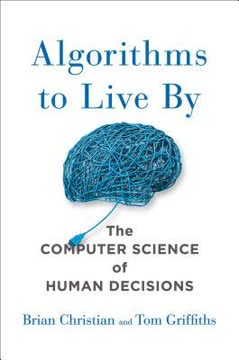Key Takeaways
1. Propaganda exploits flawed ideologies to undermine democracy
Propaganda is manipulation of the rational will to close off debate.
Propaganda defined: Propaganda is a contribution to public discourse that presents itself as embodying certain ideals, yet tends to erode those very ideals. It can take two forms:
- Supporting propaganda: Increases realization of ideals through emotional or non-rational means
- Undermining propaganda: Erodes ideals it claims to embody
Demagoguery: A particularly dangerous form of undermining propaganda that:
- Presents itself as embodying worthy political ideals
- Actually serves goals that undermine those ideals
- Exploits existing flawed ideological beliefs
- Resists rational revision due to connection with identity or self-interest
Propaganda is especially threatening to democracy because it wears down the possibility of genuine democratic deliberation. Even when used for seemingly good causes, it can lead to later problems by reinforcing flawed ideologies and hindering rational debate.
2. Reasonableness is a key democratic ideal often subverted by propaganda
To be reasonable is to take one's proposals to be accountable to everyone in the community.
Reasonableness defined: The capacity to:
- Consider the perspectives of all citizens affected by a policy
- Propose only what could be justifiable to everyone
- Empathize with and respect the dignity of others
Importance for democracy:
- Ensures policies are sensitive to interests of all, including those unable to participate directly
- Fosters mutual respect and accountability among citizens
- Legitimizes democratic decision-making
Propaganda often subverts reasonableness by:
- Appearing reasonable while actually eroding empathy for targeted groups
- Exploiting flawed ideologies to make unreasonable claims seem reasonable
- Using coded language or social meanings to exclude certain perspectives
Protecting and cultivating genuine reasonableness is crucial for maintaining healthy democratic deliberation and resisting the corrosive effects of propaganda.
3. Language and social meanings are powerful tools for propagandistic manipulation
Words are not just names for properties and things.
Linguistic mechanisms of propaganda:
- Not-at-issue content: Conveys information indirectly, making it harder to challenge
- Social meanings: Associations that words carry beyond their literal definitions
- Preference orderings: Ranking of possibilities that shape how we perceive the world
Examples of propagandistic language use:
- "Welfare" in US politics associated with negative stereotypes about Black Americans
- "Inner city" as coded reference to race and poverty
- Slurs that create insider/outsider distinctions
These linguistic tools allow propaganda to:
- Communicate problematic messages while maintaining plausible deniability
- Exploit existing biases and flawed ideologies
- Shape perceptions and judgments in subtle ways
Recognizing and critically examining these linguistic mechanisms is essential for identifying and resisting propaganda in public discourse.
4. Flawed ideologies arise from social inequalities and group identities
Flawed ideological belief masks the contradictions of undermining propaganda by erecting difficult epistemic obstacles to recognizing tendencies of goals to misalign with certain ideals.
Sources of flawed ideologies:
- Substantive inequalities (material, social, economic)
- Group identities and social practices
- Self-interest and need for self-justification
Characteristics of flawed ideologies:
- Resistant to rational revision
- Connected to identity or self-interest
- Prevent acquisition of knowledge about social reality
- Contribute to their own maintenance
Examples:
- Belief in cultural/racial superiority to justify oppression
- Meritocracy myth in unjust societies
- Stereotypes that reinforce existing hierarchies
Flawed ideologies are particularly problematic for democracy because they:
- Make people susceptible to propaganda
- Hinder recognition of social injustices
- Impede genuine democratic deliberation
Addressing flawed ideologies requires examining and challenging the social structures and practices that give rise to them, rather than focusing solely on individual beliefs.
5. Interest-relativity of knowledge creates epistemic barriers for oppressed groups
Members of negatively privileged groups will have to meet higher standards for knowledge of propositions that are, for them, "serious practical questions," in the sense I have elaborated.
Interest-relativity of knowledge: The idea that what counts as knowledge depends on the practical stakes involved for the knower.
Consequences for oppressed groups:
- Higher epistemic standards for knowledge about their oppression
- Difficulty in acting on beliefs about injustice
- Challenges in asserting claims in democratic deliberation
Mechanisms:
- Stereotype threat: Underperformance due to anxiety about confirming negative stereotypes
- Epistemic injustice: Unfair treatment as a knower due to prejudice
- Confidence shaking: Stress reducing belief below the threshold for knowledge
This creates a vicious cycle where:
- Oppressed groups face higher stakes in political decisions
- This raises the bar for knowledge about those issues
- Lack of recognized knowledge hinders political action
- Inability to act perpetuates oppression
Addressing this requires:
- Recognizing the epistemic barriers faced by oppressed groups
- Creating conditions that support confident knowledge claims
- Critically examining how interests shape our standards of evidence
6. Elites develop legitimizing myths to justify their privileged positions
People with advantages are loath to believe that they just happen to be people with advantages.
Characteristics of elite ideologies:
- Belief in natural superiority or inherent worthiness
- Distinction between intellectual and manual labor
- Meritocratic justifications for inequality
Functions:
- Justify unjust distribution of society's goods
- Maintain social control and hegemony
- Shape educational and cultural institutions
Examples:
- Ancient Greek views on natural slavery
- 19th/20th century scientific racism
- Modern technocratic ideologies
These legitimizing myths are often:
- Presented as objective or scientific fact
- Internalized by both elites and oppressed groups
- Resistant to contradictory evidence
Critically examining and challenging these myths is crucial for:
- Recognizing and addressing social injustices
- Fostering genuine democratic equality
- Creating more just and inclusive institutions
7. Education systems often perpetuate elite ideologies and social control
Ross argues that the most effective method of social control is a "school education that is provided gratuitously for all children by some great social organ."
Education as a tool for social control:
- Shapes values, beliefs, and expectations from an early age
- Determines access to knowledge and opportunities
- Reinforces existing social hierarchies
Historical examples:
- Ancient Greek education for rulers vs. slaves
- Colonial education systems imposing Western ideologies
- Early 20th century US reforms separating vocational and liberal education
Mechanisms of control:
- Curriculum design and content selection
- Tracking and sorting of students
- Emphasis on obedience and conformity
Consequences:
- Perpetuation of flawed ideologies
- Limited social mobility
- Hindered development of critical thinking
Recognizing education's role in social control highlights the need for:
- Critical examination of educational systems and practices
- Inclusive and empowering approaches to learning
- Education that fosters genuine democratic participation and reasoning
Reforming education is crucial for breaking cycles of oppression and creating a more just and democratic society.
Last updated:
FAQ
What's How Propaganda Works about?
- Exploration of Propaganda: The book examines how propaganda functions, especially within liberal democracies, by exploiting flawed ideologies to manipulate public opinion.
- Historical Context: Jason F. Stanley provides a historical overview, referencing figures like Victor Klemperer and Joseph Goebbels to illustrate propaganda's societal impact.
- Democratic Ideals: It argues that propaganda often masquerades as supporting democratic ideals, such as liberty and equality, while actually eroding them.
Why should I read How Propaganda Works?
- Understanding Modern Politics: Essential for comprehending the role of propaganda in contemporary political discourse and its implications for democracy.
- Critical Thinking: Encourages readers to critically evaluate information and recognize the ideologies shaping public narratives.
- Relevance to Current Events: Offers insights particularly pertinent in today's climate of misinformation and propaganda.
What are the key takeaways of How Propaganda Works?
- Definition of Propaganda: Stanley defines it as "the employment of a political ideal against itself," presenting subjective values as objective truths.
- Flawed Ideologies: Emphasizes that flawed ideologies hinder rational thought and empathy, which propaganda exploits.
- Demagoguery: Focuses on demagoguery, a form of propaganda that undermines political ideals while appearing as reasonable discourse.
How does Jason F. Stanley define propaganda in How Propaganda Works?
- Core Definition: Propaganda is "the employment of a political ideal against itself," often misrepresenting subjective values as objective truths.
- Mechanisms of Effectiveness: Relies on flawed ideologies to manipulate public opinion and behavior.
- Impact on Society: Highlights the insidious nature of propaganda, masquerading as legitimate discourse while undermining democratic principles.
What role does language play in propaganda according to How Propaganda Works?
- Mechanism of Control: Language manipulates emotions and bypasses rational deliberation, eroding empathy for targeted groups.
- Not-at-Issue Content: Introduces implicit meanings accompanying words or phrases, influencing perception.
- Examples of Language Use: Shows how language frames discussions to exclude certain perspectives, undermining democratic ideals.
What is demagoguery according to How Propaganda Works?
- Definition: Demagoguery is discourse presented as embodying a worthy ideal but serves goals that undermine that ideal.
- Insidious Nature: Exploits flawed ideologies, leading individuals to support policies against their interests unknowingly.
- Examples in Politics: Discusses contemporary U.S. politics, where rhetoric manipulates public perception.
How does How Propaganda Works relate to democracy?
- Threat to Democratic Ideals: Propaganda undermines public reason and rational deliberation, posing a threat to democracy.
- Erosion of Empathy: Often erodes empathy for marginalized groups, hindering fair democratic deliberation.
- Civic Rhetoric: Contrasts demagoguery with civic rhetoric, which fosters understanding and empathy among citizens.
What is the significance of flawed ideologies in How Propaganda Works?
- Barrier to Rational Thought: Flawed ideologies prevent individuals from recognizing their interests and propaganda's manipulative nature.
- Exploitation by Propagandists: Propagandists craft messages resonating with the public, leading to misguided beliefs and actions.
- Connection to Democracy: Argues that flawed ideologies distort public understanding, undermining democratic deliberation.
How does Stanley address the concept of self-affirmation in How Propaganda Works?
- Self-Affirmation Theory: Individuals maintain a self-conception as "good and appropriate," influencing beliefs and actions.
- Impact on Ideological Beliefs: Leads individuals, especially the privileged, to adopt flawed beliefs justifying their status.
- Connection to Stereotype Threat: Links self-affirmation to stereotype threat, affecting marginalized groups' performance and self-perception.
What examples does Stanley use to illustrate propaganda in How Propaganda Works?
- Historical Contexts: References propaganda by totalitarian regimes to show language and ideology manipulation.
- Contemporary Issues: Discusses modern examples, like Iraq War rhetoric, illustrating propaganda in democratic societies.
- Case Studies: Includes case studies highlighting propaganda mechanisms and effects on public perception and policy.
How does How Propaganda Works relate to current political issues?
- Relevance to Modern Politics: Explores propaganda's role in current discourse, where misinformation is prevalent.
- Critical Media Literacy: Advocates for questioning media and political narratives to combat propaganda.
- Empowerment through Awareness: Understanding propaganda mechanisms empowers individuals to engage in democratic processes.
What solutions does Stanley propose in How Propaganda Works?
- Promoting Critical Engagement: Encourages skepticism towards dominant narratives and critical information consumption.
- Educational Reforms: Suggests teaching about propaganda's effects, equipping individuals to recognize manipulative rhetoric.
- Encouraging Diverse Perspectives: Advocates for diverse perspectives in discourse to counteract propaganda and promote equity.
Review Summary
How Propaganda Works received mixed reviews. Many readers found it insightful but overly academic and verbose. Some praised its analysis of propaganda in liberal democracies and its exploration of linguistics and epistemology. Others criticized its writing style, repetitiveness, and lack of concrete examples. Several reviewers noted that the book veers away from its titular subject, focusing more on ideology and language. While some found it a challenging but rewarding read, others felt it could have been more concise and accessible.
Similar Books
Download PDF
Download EPUB
.epub digital book format is ideal for reading ebooks on phones, tablets, and e-readers.















